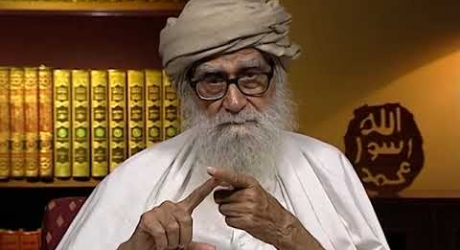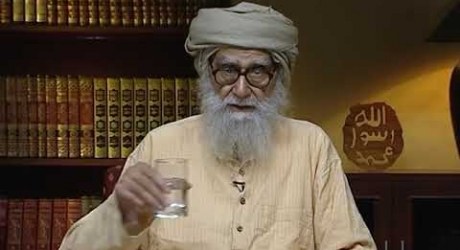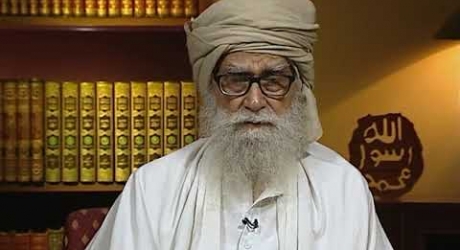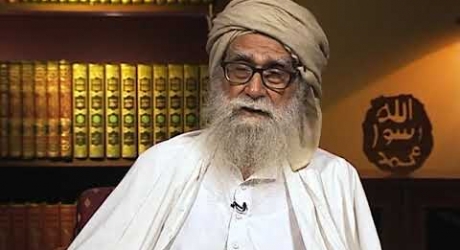THE Prophet Muhammad called the month of Ramadan a month of patience. The Quran states that fasting during this month has been prescribed so that man may become God-fearing. These two qualities are required of us every month of the year. Why is it that they have been so particularly mentioned in connection with the month of Ramadan?
The reason for this is Ramadan is the special period of the year during which these qualities are to be cultivated. Of course, the exercise of patience and piety is required of every believer every day of the year and every year of his life. These are principles to which he must at all times adhere. But in this one particular month, special stress has been laid on this so that these two attributes become an integral part of one’s character. This is done by laying down a certain discipline, so that much as people may want to do something, they will then refrain from doing it if it is an action displeasing to God. If they wish to eat or drink something, no matter how strong their desires, they will not do so if Divine law prohibits it. They will follow the will of God irrespective of the circumstances and regardless of any difficulties they may encounter in the process. Even if it means leaving behind, or abstaining from, that which they hold most dear, they will not abandon the way of God.
Introduction
It is the twenty-fifth day of the month of Ramzaan and today I shall share my thoughts on this final phase of the month of fasting. It is critical to understand that words in the Quran and Hadith must be rephrased to fathom their deeper meaning. This is so because the intellectual level of modern man is different from that of traditional men. The Hadith and the Quran give various references for the month of Ramzaan - Shahr–us-sabr, Shahr-ud-dua, Shahr-ut-taqwa and Shahr-ush-shukr. Putting together the essence of all of these, I would say that Ramzaan is Shahar-ur-Rabbaniyat or the month of spirituality.
To understand the spirit, it is important that we view things in comparison. Fasting has been made obligatory upon man. No other creature - animal, heavenly body, mountain or ocean can observe a fast. Since man has been chosen by way of exception, there must be a deep purpose to it.
Fasting for the sake of God
Explaining the importance of fasting and the unlimited reward that is its due, a Hadith states
He who fasts, leaves food and fulfilment of his desires for My sake (Al-Bukhari)
Man abstains from his basic necessities for the sake of God. In doing so, he realises the importance of the blessings of God. No other creature is capable of either such abstinence or such realisation. Food and drink are man’s most basic necessities. When he is consumed by hunger and thirst, he understands how weak he really is; he realizes how much he is in need of God’s succour. In the evenings, after a whole day of fasting, people eat and drink their fill: that is when their hearts are flooded with a sense of gratitude to God for His having made complete provision for their needs. That is when they praise God and offer up their thanks to Him. Man alone can experience this and then thank God for the blessings He has bestowed upon him. According to a Hadith, the Prophet was reported to have said the following at the time of breaking his fast
Bhukh-pyaas chali gayi aur ragein tar [nourished] ho gayi,
aur allah ke yahan iski jazaa [reward] muqarar [assign] kar di gayi (Abu Dawud)
Last Evening of Shabaan
Citing of moon marks the end of the month of fasting. This is a great illustration for men of understanding. Through this example, God depicts that as the end of a day draws near, a new beginning emerges. This discovery of a new, bright beginning enables man to experience a tempest of positive emotions. The message from God is clear – in His world, there is no room for despair or complaints; man must remain hundred percent positive in every situation. Seeing the moon such broadens the intellectual horizon of man. This becomes possible only after man has made adequate preparations to develop his insight.
Importance of Preparation
All forms of worship seek a pre-worship for them to be rendered effectively. Spirited namaz for instance demands the reading of a pre-namaz. The importance of preparation is best understood through the following illustration. An acquaintance of Sir C V Raman, in an attempt to underrate his academic success, commented that his famous discovery, Raman Effect, had been a mere accident, as in the case of many other scientists who had discovered important things just by chance. On hearing this, Raman displayed no annoyance but replied quite seriously that “the idea that a scientific discovery can be made by accident, is ruled out by the fact that the ‘accident’ if it is one, never occurs except to the right man.”
Defining the purpose of fasting, a verse in the Quran states
He desires you to fast the whole month, so that..you may be grateful to Him (2:185)
Today, the phrase Alhamdulillah has become a cultural identity. The Companions never used this phrase in this context. This was so because this phrase is no ordinary utterance; it results from discovery of blessings that God has bestowed upon man. In this world man has to lead his life in circumstances in which he experiences various kinds of situations: there are times of gain, times of loss; times of happiness and times of grief. Sometimes he receives good treatment at the hands of others, at other times his fate is quite otherwise. The ideal human being of the Qur'an is one who undergoes all these experiences without losing his integrity. Under no circumstances is his inner peace disturbed.
According to Islam, the highest spiritual goal for man is his spiritual uplift when he becomes a complex-free soul which can withstand all kinds of negativity. Thus a developed or complex-free soul is one which, having reached a high level of thinking, has risen from all kinds of negativity and has attained a positive identity in the full sense of the word. Only then can he truly acknowledge the blessings of God and be grateful to Him.
Unfortunately, the present-day Muslims remain immersed in negative thinking. They live in a psychology of siege and hatred. George Bernard Shaw said, “the most uneducated person is one who has nothing to forget.” Forgetting thus is a precondition for being truly thankful.
It is important to understand that the world is place of competition where rise and fall follow one another. However, in order to be truly grateful to God, man must rise above his negative biases. Let me clarify this with an example from the life of the Prophet Muhammad. When in
You have indeed in the Prophet of God a good example (33:21)
The above verse means that Prophet Muhammad is a model in every sense. Muslims must therefore develop high thinking and rise above all negative emotions; only then will they be able to express true gratitude to God. To do so, one must learn to transfer events in God’s bucket so that he can overcome its negative aspect and focus his attention on realising bigger realities of life.
Fasting teaches universality
The Quran states
Believers! fasting has been prescribed for you, just as it was prescribed
for those before you. (2:183)
The practice of fasting therefore inculcates a sense of universality. It connects a believer to all those believing men and women who fasted for the sake of their Lord in earlier times.
This indicates that man has not traversed the path of spirituality alone and the courage he develops arouses in him a sense of well-wishing for the entire mankind.
A Big Lesson
During the month of Ramzaan, man makes everything save his bare necessities, a secondary concern. This is the true essence of fasting whereby man breaks out of his routine and overhauls his lifestyle. From his sleep to his speech and interaction, everything becomes limited. The focus of his attention is God Almighty.
The practice of aehtekaaf illustrates the gist of the month of Ramzaan. During this practice, one casts himself into seclusion such that everything else becomes secondary for him. His efforts are directed towards thinking and reflecting upon God and His greatness.
The month of Ramzaan teaches man to forgive others so that God allows him entry into the Home of Peace. This can become possible only if man makes everything else a secondary concern save God who remains his prime concern. Referring to Ramzaan, a verse in the Quran states
God desires ease for you, not hardship (2:185)
This verse means that through Ramzaan, God seeks ease and not difficulty for man. If abstinence from food and water was for the sake of hunger alone, it would indeed have been difficult but this is not the case. Fasting is for a higher goal so that man can make God the central point of his life.
Reward of Fasting
According to a Hadith
Rozedaar ke muh se jo khuloof [breath of air] nikalta hai, who allah ko mushk [musk] se bhi zyada pasand hai (Al - Bukhari)
In this tradition, the word, ‘khuloof ‘does not refer to its literal meaning ‘breath’. It is a symbolic statement. It means that one who has remained hungry for a whole day experiences a change of tone. In other words, hunger inculcates submission, helplessness and modesty, which reflects in speech.
Contrary to this, a person who has eaten to his fill will exude arrogance, pride and a false sense of satisfaction. God likes this tone of submission and helplessness. The month of Ramzaan trains man in such modest behaviour. This is so because hunger is strangely powerful. It kills arrogance and cuts-man-to-size. Devoid of two meals, man starts experiencing his true meek self.
According to a tradition, the Prophet said that God says to man
All of you are hungry save those whom I provide for (Sahih Muslim)
It is miraculous how foodgrains and vegetables are grown. I once climbed atop a mountain which was completely barren. Standing there, I thought about the fate of man, if Earth becomes devoid of food and water. This month of fasting therefore serves as a reminder to realise and thank our Benefactor.
According to another Hadith, when a believer invokes God, He says to Gabriel,
Ae Gabriel! Iski hajat [need] abhi poori [fulfill] naa kar kyun ki mujhe mehboob hai ki mein iski awaaz aur sunu (Jaame-ul-uloom val-hikam)
This is the voice which indicates submission to God’s will. This tone is a result of man’s realisation that he is a taker and God alone is the Giver.
Towards the end
Abstinence for the sake of abstinence is of no avail. But when man abstains for the sake of God, he discovers his helplessness vis-à-vis the all-powerful God. Man cannot give anything to God except acknowledgement. True acknowledgement makes man realise that God is the Creator and man is his creation; He is all-powerful and man is all-powerless.
According to a Hadith
Satan is tied during the month of Ramzaan (Mishkat)
Tying in the above tradition, does not refer to physical tying down of Satan. It is to suggest that the month of Ramzaan saves man from distraction and he no longer remains vulnerable to the promptings of Satan. From the limited interaction to the changed routine, every aspect of one’s daily life gets overhauled during the month of Ramzaan. This is because one starts spending more time in the remembrance of God. As a result of this shift, man is able to save himself from distraction.
As I listened to the siren in the evening, it occurred to me that this was a reminder of the coming to end of the test period and the beginning of the reward period. Companions used to rush to the mosques at the sound of lightning. So when the siren goes off one must think that he who passes the test, will become successful and he who does not will be cast away.
Lastly, I would say that Eid marks the culmination of the month of Ramzaan. According to a tradition, Eid is
Yaoum-e-jayeza (Day of Reward) – Al-Baihaqi
In other words, the day of Eid is the day of reward. If man fulfills all conditions of Ramzaan, he becomes eligible for the reward on the day of Eid. According to another Hadith, as man goes to read his prayer, he urges to God,
O God, Grant me paradise! God replies that since man strove for a whole month for His sake, he has become eligible for the reward. God then asks the angels to bear witness that He has fulfilled what they [the believers] asked of Him. (Al-Baihaqi)
May we keep the essence of fasting alive throughout the year!












